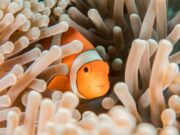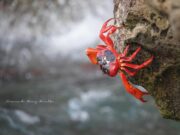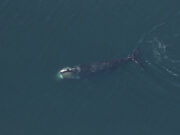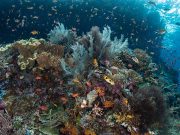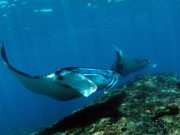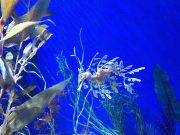Scientists from Osaka Metropolitan University have demonstrated that a fish species employs physical punishment to elicit helping efforts from their offspring, indicating advanced social and cognitive skills previously thought to be unique to higher vertebrates.
The results of their study were published online in Animal Behaviour on April 6.
For millennia, human societies have used punishment to promote cooperation and maintain social order. But humans are not the only species seeking better cooperative behavior. So how do other animals achieve this?
Seeking an answer, the research team from the Graduate School of Science at Osaka Metropolitan University took a look at a rather taciturn animal: fish, more specifically, Neolamprologus savoryi, a cooperatively breeding cichlid fish.
Helper fish, assist dominant breeders in, for example, defending territory against intruders or maintaining the breeding shelter.
This study showed that dominant breeders physically attacked idle helpers — including their own offspring — to promote the latter’s participation in cooperative activities. Indeed, those experiencing such aggression subsequently increased their efforts in helping behaviours. In contrast, helpers who engaged proactively in helping behaviours avoided aggression from dominant breeders. The helpers that were attacked by the breeders increased territorial defence. Pre-emptive helping by subordinates may function as pre-emptive appeasement.
The ‘pay-to-stay’ hypothesis predicts that in cooperatively breeding animals, dominant breeders punish idle subordinates (helpers) that assist breeders in offspring care to promote their cooperation. However, limited evidence demonstrates that subordinates increase helping effort in response to breeder aggression
Punishment not exclusive to human societies
The study’s findings highlight that punishment is not exclusive to human societies but is also present in how other animals enforce cooperation and maintain social relationships. This research bridges a gap in understanding the evolution of cooperative behavior and the mechanisms animals use to sustain it.
“Our findings reveal that fish, like humans, employ advanced cognitive abilities to sustain their societies. This compels us to reconsider the notion of ‘intelligence’ not only in fish but across the animal kingdom,” lead scientist Awata said.
Further Reading
Ryo Hidaka et al, Punishment from dominant breeders increases helping effort of subordinates in a cooperatively breeding cichlid, Animal Behaviour, Volume 211, 2024, .

